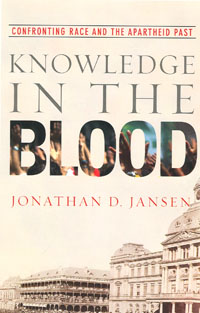Latest News Archive
Please select Category, Year, and then Month to display items
01 October 2019
|
Story Prof Francis Petersen
|
Photo Pixabay

During October, the national focus is on mental health. Mental Health Awareness Month also coincides with a time when our students prepare for the end of the year exams, making it a particularly valuable time for us to think about how we can continuously assist them during their time at university. The value of peer support and genuine care can never be overstressed; that is why I want to encourage our students to reach out to their support networks such as our Department of Student Counselling and Development, as we move towards the end of the year.
Mental health is an equally important matter for our staff. During this month, I want to encourage our staff to also take cognisance of their own well-being. There is a lot of wisdom in the old adage: Healthy body, healthy mind. Many of the initiatives of our Division of Organisational Development and Employee Wellness are focused on the value of physical activity and the negative impact that inactivity can have on one’s productivity and mental health. They also present regular lunch-hour sessions for our staff, where experts share information and practical tips for mental wellness. I want to encourage our staff to attend these sessions and to make use of the services the university has to offer in this regard. It is important to note that suffering from mental and anxiety disorders is not weaknesses and it is not always indicative of a deeper psychological issue; it is an illness and hence can be treated.
On 20 September 2019, a 21-member team was sent off on their run of 1 075 km to Stellenbosch to raise awareness for mental health. The run was organised by the Division of Organisational Development and Employee Wellness and the Faculty of Health Sciences. The team ran in relay format throughout the night and handed the baton of hope to Stellenbosch University on 25 September 2019. I admire and thank them not only for their commitment and stamina, but also for addressing this crucial matter in the public domain and for raising awareness in the many towns and communities along the way.
This is an excerpt from a message by Prof Francis Petersen.

Knowledge in the blood
2009-08-05
| Knowledge in the blood |
|
 The book Knowledge in the blood, by Prof. Jonathan Jansen, Rector and Vice Chancellor, is available at a bookstore on the Thakaneng Bridge. The book Knowledge in the blood, by Prof. Jonathan Jansen, Rector and Vice Chancellor, is available at a bookstore on the Thakaneng Bridge.
Knowledge in the blood
Confronting race and the apartheid past
Professor Jonathan D. Jansen
978 1 91989 520 8
225 x 152mm
336 pages
Soft cover
May 2009
R250.00 (incl. VAT)
UCT Press
Southern African rights
This book tells the story of white South African students—how they remember and enact an Apartheid past. How is it that young Afrikaners, born at the time of Mandela’s release from prison, hold firm views about a past they never lived, rigid ideas about black people, and fatalistic thoughts about the future? Jonathan Jansen, the first black dean of education at the historically white University of Pretoria, was dogged by this question during his tenure, and Knowledge in the Blood seeks to answer it.
While Jansen originally set out simply to convey a story of how white students change under the leadership of a diverse group of senior academics, Knowledge in the Blood ultimately became an unexpected account of how these students in turn changed him.
“Brave, discerning, and deeply affecting. Bringing realism and rare moral generosity to the most difficult of conflicts, Jonathan Jansen illuminates the struggles faced by the inheritors of violence, as they move from pride and prejudice to a new and larger knowledge. An act of empathy as well as penetrating analysis, Knowledge in the Blood is an inspiring blueprint for thinking about social and personal transformation.”
—Eva Hoffman, author of After Such Knowledge
|
|
|